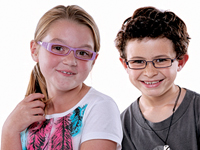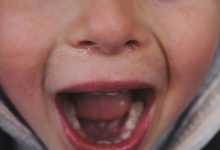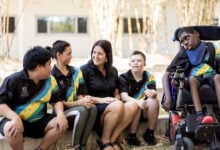Poor eyesight = poor learning

 Poor eyesight will almost certainly affect a pupil’s ability to learn. Research shows that 80 per cent of a child’s learning is done visually
Poor eyesight will almost certainly affect a pupil’s ability to learn. Research shows that 80 per cent of a child’s learning is done visually
and if that visual sense is not working effectively, learning ability will be impaired.
The numbers affected might be much higher than generally thought. Some New Zealand optometrists believe that at least 20 per cent of school children have problems with their vision which could affect their learning if not attended to. Others say it could be as high as 40 per cent. At either level, that would mean reduced outcomes later in life for many thousands of children.
Poor eyesight does not necessarily mean just being short or long sighted. Optometrist Ian Finch of Visique in Whakatane says it is also essential that both eyes be able work together over an extended period of time, meaning the fatigue factor must be considered. And particularly when reading, a child must not only have good vision and good eye teaming, but also have good eye tracking. That means that the eyes can move along a line smoothly, and then efficiently move back to the start of the next one.
Fellow Visique optometrist, Peter O’Hagan of Paeroa, agrees not being able to see clearly does not tell the whole story. “Not seeing comfortably can be more of a problem. If kids get tired and sore eyes, they avoid concentrating on their task, and that affects their learning.”
Detecting vision problems places another responsibility on teachers but both optometrists say some of the symptoms are fairly simple to spot. Key signs that indicate a professional examination would be warranted include: headaches, children rubbing their eyes, or shutting one eye – particularly when they are reading. “If kids are suggesting they’ve got burning or itchy eyes, or showing poor concentration when they’re studying, that would be something we’d be interested in looking at,” said Mr Finch.
Close work, particularly reading, can indicate problems. That might involve children losing their place when they are copying, and not appearing to maintain focus on a line when reading. Tiredness after close work, or perhaps avoiding close work altogether, they see as other important factors. Letter reversal, or perhaps the omission of small words could also suggest problems. Mr O’Hagan says optometry can identify all of them. Both believe teachers can fairly easily recognise when a child is not achieving as well as it should. That could mean a very bright child who is only performing at an average level. A plateau or regression in performance is usually a strong sign.
Symptoms are likely to be different at primary and secondary level. “At primary school, you are generally seeing long sight, astigmatism, lazy eye and poor focusing,” said Mr Finch. “While the younger ones might have recently been through a B4 School test, that is only able to spot really gross anomalies. It doesn’t find a lot of the issues that would affect learning.
“At secondary school level, you’re more likely to see the development of short sight. A lot of short sightedness develops in the age 10-12 group and progresses through the teenage years. Teachers find that very often, students who are struggling with learning have associated behavioural problems,” he said. Although both men say vision correction is ultimately the child’s parents’ responsibility, they advise that if teachers consider there could be a problem, they should suggest the need for an eye examination with the parents. Many of those parents will be worried about the cost, but the optometrists say this should not be a major concern. “Under the Enable system, if a child has a community health card or a high user card, the eye exam will be subsidised by the Government and, in many cases, will be free of charge,” said Mr Finch. Both say the scheme will also often contribute towards the cost of the spectacles and it is common for spectacles to be provided without cost.
For teachers who want to learn more, Visique can provide a printed or online guide towards symptoms they should look for. And if they are ever in doubt, given the long term damage that sight problems can cause, both optometrists agree that any child would benefit from a thorough eye examination.









